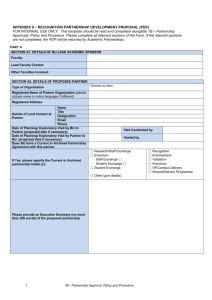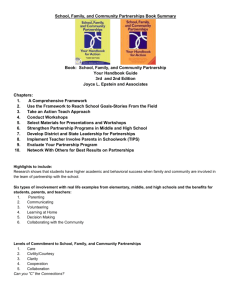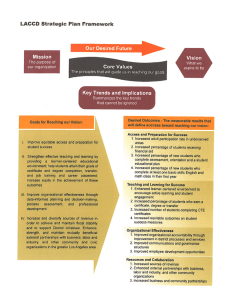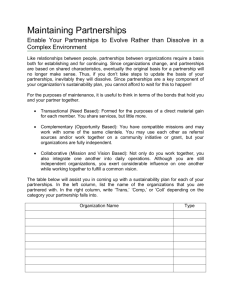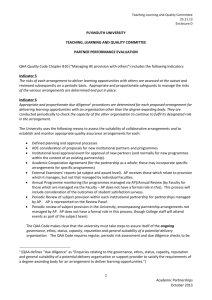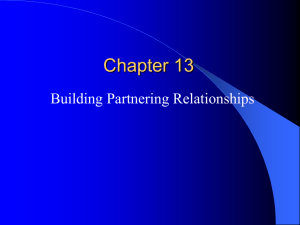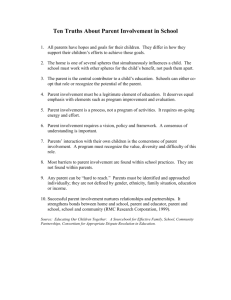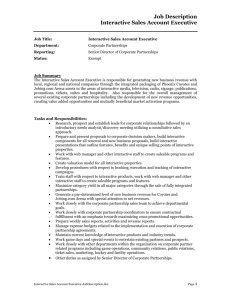INTRODUCTION - University of Essex
advertisement
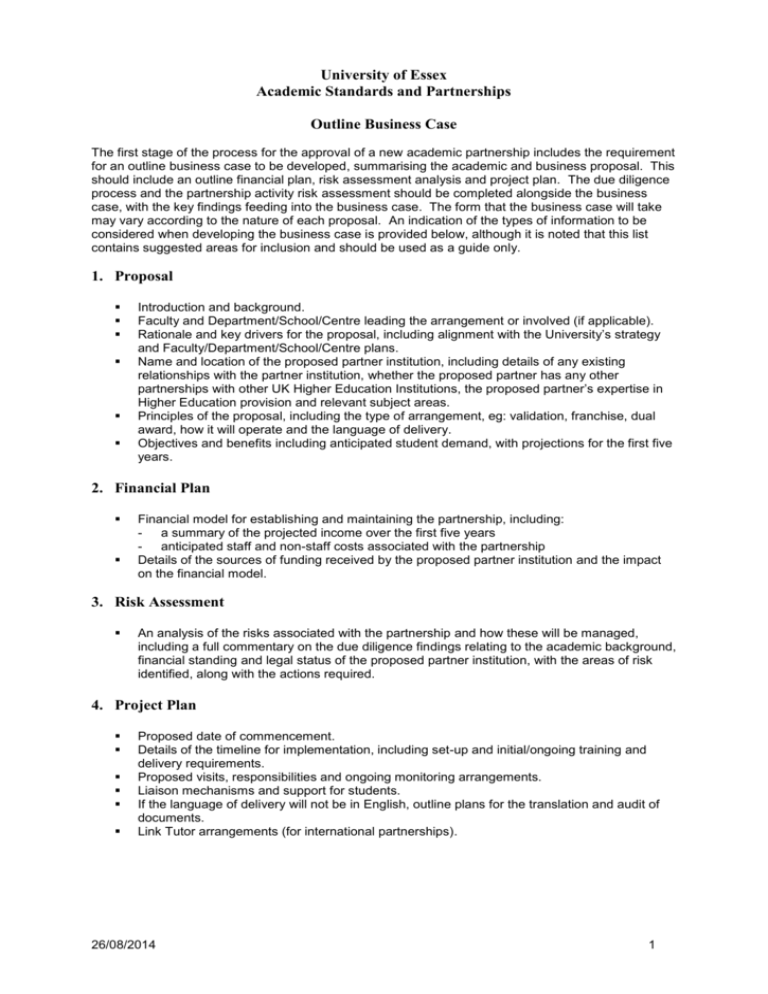
University of Essex Academic Standards and Partnerships Outline Business Case The first stage of the process for the approval of a new academic partnership includes the requirement for an outline business case to be developed, summarising the academic and business proposal. This should include an outline financial plan, risk assessment analysis and project plan. The due diligence process and the partnership activity risk assessment should be completed alongside the business case, with the key findings feeding into the business case. The form that the business case will take may vary according to the nature of each proposal. An indication of the types of information to be considered when developing the business case is provided below, although it is noted that this list contains suggested areas for inclusion and should be used as a guide only. 1. Proposal Introduction and background. Faculty and Department/School/Centre leading the arrangement or involved (if applicable). Rationale and key drivers for the proposal, including alignment with the University’s strategy and Faculty/Department/School/Centre plans. Name and location of the proposed partner institution, including details of any existing relationships with the partner institution, whether the proposed partner has any other partnerships with other UK Higher Education Institutions, the proposed partner’s expertise in Higher Education provision and relevant subject areas. Principles of the proposal, including the type of arrangement, eg: validation, franchise, dual award, how it will operate and the language of delivery. Objectives and benefits including anticipated student demand, with projections for the first five years. 2. Financial Plan Financial model for establishing and maintaining the partnership, including: - a summary of the projected income over the first five years - anticipated staff and non-staff costs associated with the partnership Details of the sources of funding received by the proposed partner institution and the impact on the financial model. 3. Risk Assessment An analysis of the risks associated with the partnership and how these will be managed, including a full commentary on the due diligence findings relating to the academic background, financial standing and legal status of the proposed partner institution, with the areas of risk identified, along with the actions required. 4. Project Plan Proposed date of commencement. Details of the timeline for implementation, including set-up and initial/ongoing training and delivery requirements. Proposed visits, responsibilities and ongoing monitoring arrangements. Liaison mechanisms and support for students. If the language of delivery will not be in English, outline plans for the translation and audit of documents. Link Tutor arrangements (for international partnerships). 26/08/2014 1


